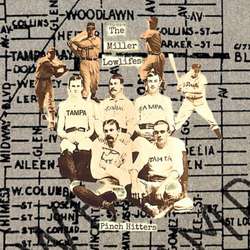I admit it: arguably the guiltiest of my guilty pleasures is Euro disco, a genre which found (sometimes quite dubiously-talented) European musicians exaggerating the basic tenets of '70s dance music to the point of near-absurdity. Hard as it is to resist the infectious but undeniably cheesy keyboard lines in many of the genre's songs though, it also would be difficult for me to claim that there's any truly outstanding proper Euro disco album: if any genre of music is best represented by its singles, this may just be it. Taken in large quantities, Euro disco simply loses its appeal and I get lost amongst the pounding rhythms and woozy melodies.
Of all the people working this genre, among the most successful was Italian Giorgio Moroder, whose pioneering production work for Donna Summer not only changed the face of disco, but paved the way for full-blown techno in the years to come. Daft Punk's 2013 Random Access Memories thrust Moroder back into the spotlight after years under the radar, and he quickly set about work on his first new album in over two decades. The resulting effort, 2015's Deja Vu is a nice demonstration of Moroder's ability to craft toe-tapping, catchy tracks, yet comes across as being cumbersome, ultimately undermined by a few too many (occasionally overblown) guest vocal appearances.
Deja Vu starts off well enough with the upbeat instrumental “4 U With Love,” a track driven by pulsating rhythm and a delicate but tuneful main theme. Honestly, the track sounds right at home amongst the work of contemporary electronic producers, lacking the somewhat sterile and vacuous mixing that was heard on many vintage Euro disco singles. The album's title track, smokier and moody during its verse, boasts soulful vocals from Sia and really blossoms during a hopeful chorus which finds syncopated guitar accentuating the already prominent rhythm. With Charli XCX performing the vocals, “Diamonds” is more buzzy, but it marks the first time on the album that some notion of corniness enters the picture. The track has rather dramatic interludes, but can't quite make an entirely smooth transition back into straight-forward dance music territory, and follow-up “Don't Let Go,” with vocals from Mikky Ekko, comes across as a generally fruitless attempt at at making an emotionally resonant number.
Kylie Minogue and the vocoder feature prominently in the rather forgettable “Right Here, Right Now,” while vocalist Matthew Koma helps turn “Tempted” into a saccharine wonderland of bubbling synth and clopping rhythm. “74 Is the New 24” finds Moroder on his own doing what he does best: a throbbing track with a snake-charmer melody that's actually more wholly satisfying than many of the previous vocal features. Those vocal-driven tracks hit their low point with a cover of Suzanne Vega's “Tom's Diner” which is centered around the singing of Britney Spears. Handing Brit-Brit a piece whose well-known main vocal line goes something like “Duh-duh-duh-duh, duh-duh-duh-duh” may not have been such a good idea: it only serves to emphasize the Auto-Tune almost certainly involved in the performance.
Afterward, it's up to British singer Foxes to try and start salvaging the record on “Wildstar,” and the piece, sounding quite consistent with the type of late '70s disco that put Moroder on the map, works surprisingly well. “Back and Forth” plays somewhat like an agreeable outtake from the '80s, with warm, doubled up vocals from Kelis soaring over pumping kick drum and playful keyboard. Penultimate track “I Do This for You” slows the tempo down a bit for a more expressive tune and the album concludes with the mostly instrumental “La Disco.”
Undoubtedly, Deja Vu has its moments, an appealing and energetic, ceaselessly bright album that will hold immense appeal to those who enjoy Moroder's previous work. Still, the record seems extremely gimmicky and plays like a compilation, not a solo album. One has to wonder why Moroder utilized this many guest vocal appearances: sure, this thing is little more than the sonic equivalent of a pixie stick, all sugar with next to no substance, but I can't help but think the album would have turned out somewhat better had it not taken a revolving door approach to the vocals. Far from being as great - or as poor - as some people (myself included) might have expected, Deja Vu is simply mediocre, and therefore a somewhat discouraging (final?) salvo from a producer whose impact on popular music is impossible to deny.




